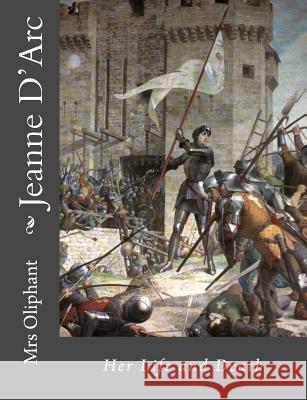Jeanne D'Arc: Her Life and Death » książka
Jeanne D'Arc: Her Life and Death
ISBN-13: 9781492735878 / Angielski / Miękka / 2013 / 378 str.
It is no small effort for the mind, even of the most well-informed, how much more of those whose exact knowledge is not great (which is the case with most readers, and alas with most writers also), to transport itself out of this nineteenth century which we know so thoroughly, and which has trained us in all our present habits and modes of thought, into the fifteenth, four hundred years back in time, and worlds apart in every custom and action of life. What is there indeed the same in the two ages? Nothing but the man and the woman, the living agents in spheres so different; nothing but love and grief, the affections and the sufferings by which humanity is ruled and of which it is capable. Everything else is changed: the customs of life, and its methods, and even its motives, the ruling principles of its continuance. Peace and mutual consideration, the policy which even in its selfish developments is so far good that it enables men to live together, making existence possible, -scarcely existed in those days. The highest ideal was that of war, war no doubt sometimes for good ends, to redress wrongs, to avenge injuries, to make crooked things straight-but yet always war, implying a state of affairs in which the last thing that men thought of was the golden rule, and the highest attainment to be looked for was the position of a protector, doer of justice, deliverer of the oppressed. Our aim now that no one should be oppressed, that every man should have justice as by the order of nature, was a thing unthought of. What individual help did feebly for the sufferer then, the laws do for us now, without fear or favour: which is a much greater thing to say than that the organisation of modern life, the mechanical helps, the comforts, the easements of the modern world, had no existence in those days
Zawartość książki może nie spełniać oczekiwań – reklamacje nie obejmują treści, która mogła nie być redakcyjnie ani merytorycznie opracowana.











